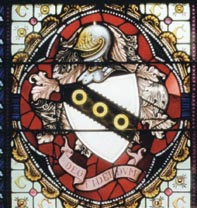

Nine of the interview subjects are Clarkson University alumnae from the classes 1974 to 1979. Two of the interview subjects were administrators at Clarkson while the women were in college; one was the President from 1974 to 1985, and the other is currently a Clarkson Vice President and was the long-time Executive Director of the Career Development Center. (Note that this website was originally created in Spring 2015 and indicates positions held in 2015, not today.)
Of the nine alumnae who were interviewed, eight majored in engineering, and one majored in math and worked as an engineer. When these alumnae attended Clarkson in the 1970's, the school’s student body/demographics consisted primarily of white students from New York State. Accordingly, the subjects who volunteered for these interviews are white and originally from New York State. The women are straight and gay, they are married, partnered, and divorced, they live throughout the United States, they grew up in working-class and middle-class families (many paid for college themselves), they have careers in engineering, they have careers in management, they are the breadwinners in the their families, they are stay-at-home mothers, and they volunteer in their communities and for their alma mater. They all feel a connection to Clarkson, which is not surprising given that they volunteered to be interviewed for this project (sometimes in connection with an alumni reunion).
Their experiences as women engineers varied. When they were young, some received support and encouragement from family members, guidance counselors, and peers to pursue their interests in technology. Others bucked the system to pursue these interests. Some talked about sex discrimination they faced at Clarkson while many said that they felt that they could pursue whatever they wanted there (including some of the ones who faced sex discrimination). While in the workplace, many of these women faced both subtle and blatant sex discrimination and were forced to acknowledge differences in the professional experiences of male and female engineers. Several of the women said that they had not liked thinking of themselves as “women engineers,” but as they advanced professionally, they faced increasing challenges because of their sex, an experience which forced them to reassess the role of gender in shaping their careers. As they have aged, a number of these women have chosen to share their stories with and mentor younger women in engineering and in their communities.